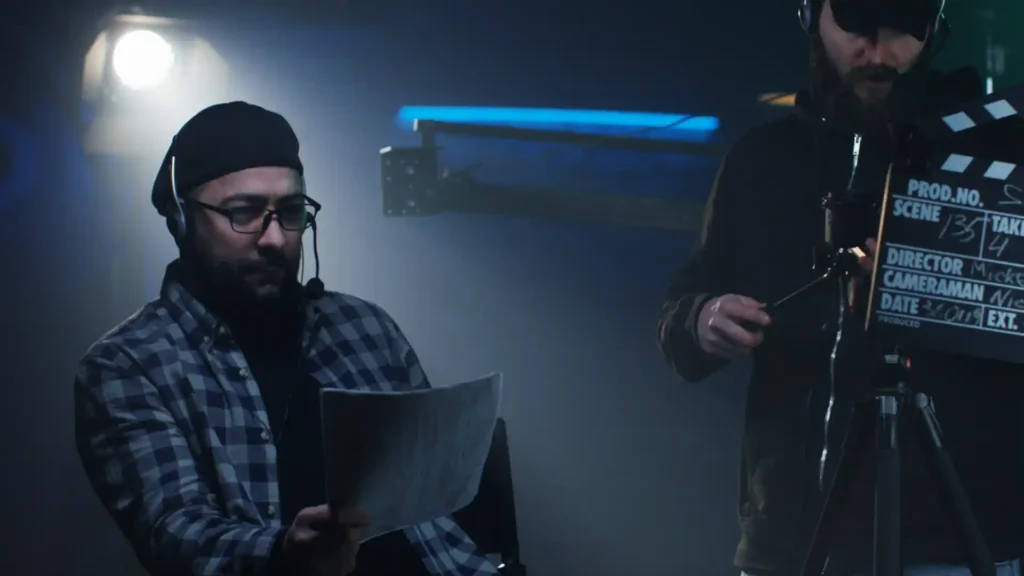Television script samples serve as windows into the world of TV writing, offering valuable insights into the craft of storytelling for the small screen. From character development to dialogue intricacies, analyzing television script samples can provide aspiring writers with a blueprint for creating compelling narratives that resonate with audiences.
1. Pilot Episode Scripts
Pilot episode scripts are the foundation upon which a television series is built. These scripts set the tone, introduce key characters, and establish the central conflicts that will drive the narrative forward. By studying pilot episode scripts from successful shows, aspiring TV writers can gain a better understanding of how to hook viewers from the start and lay the groundwork for engaging storytelling.
2. Character-Driven Scripts
Television shows often hinge on well-developed and relatable characters that viewers can connect with. Character-driven scripts focus on the emotional journeys, motivations, and growth of key characters throughout a series. By examining character-driven scripts, writers can learn how to create multi-dimensional characters with depth, complexity, and arcs that resonate with audiences.
3. Dialogue-Heavy Scripts
Dialogue is a crucial element of television writing, shaping character interactions, revealing personalities, and advancing plotlines. Dialogue-heavy scripts showcase the art of crafting engaging conversations that feel natural, authentic, and impactful. Analyzing how successful shows handle dialogue can help writers hone their skills in creating memorable and meaningful exchanges between characters.
4. Plot Twist Scripts
Plot twists are powerful storytelling tools that can surprise and captivate viewers, keeping them invested in the narrative. Scripts that masterfully execute plot twists demonstrate the art of subverting expectations, building tension, and delivering satisfying payoffs. By studying plot twist scripts, writers can learn how to effectively incorporate unexpected twists that enhance the storytelling experience.
5. Genre-Specific Scripts
Different genres require unique approaches to storytelling, tone, and pacing. Genre-specific scripts offer valuable insights into the conventions, tropes, and expectations of various genres, whether it be drama, comedy, sci-fi, thriller, or fantasy. By analyzing genre-specific scripts, writers can gain a deeper understanding of how to tailor their writing to suit the specific demands of different genres and create authentic and engaging stories.
6. Multi-Episode Arc Scripts
Television series often feature overarching storylines that unfold across multiple episodes or seasons. Multi-episode arc scripts showcase the intricacies of long-form storytelling, including character development, plot progression, and thematic exploration over an extended narrative arc. By delving into multi-episode arc scripts, writers can learn how to sustain tension, build momentum, and craft compelling narratives that unfold over time.
7. Show Bible Scripts
Show bibles provide a comprehensive overview of a television series, including character descriptions, episode summaries, story arcs, and thematic elements. Show bible scripts offer a behind-the-scenes look at the creative vision and world-building process of a show, serving as a roadmap for writers and creators. By studying show bible scripts, writers can gain valuable insights into the planning, structure, and continuity required to develop a successful TV series.
8. Collaborative Scripts
Television writing often involves collaboration with other writers, showrunners, directors, and producers. Collaborative scripts demonstrate how writers work together to brainstorm ideas, develop storylines, and refine scripts through feedback and revisions. By examining collaborative scripts, writers can learn how to navigate the collaborative process, incorporate feedback effectively, and contribute to a cohesive and unified creative vision for a television series.
9. Spec Scripts
Spec scripts, short for speculative scripts, are original scripts written as samples to showcase a writer’s skills and creativity. Spec scripts allow writers to demonstrate their ability to capture the voice, tone, and style of existing shows or create original concepts that highlight their unique storytelling abilities. By crafting spec scripts, writers can showcase their talent, versatility, and vision to potential employers and industry professionals.
10. Pitch Scripts
Pitch scripts are designed to pitch new television show ideas to networks, studios, or production companies. These scripts encapsulate the essence of a series, introducing compelling characters, intriguing premises, and captivating storylines that can attract interest and investment. By creating pitch scripts, writers can learn how to distill their ideas into a concise and compelling format that effectively communicates the potential of their TV show concept.
Conclusion
Television script samples offer a treasure trove of knowledge and inspiration for aspiring TV writers looking to hone their craft and elevate their storytelling skills. By studying a diverse range of scripts, from pilot episodes to pitch scripts, writers can gain valuable insights into the art and science of television writing, empowering them to create compelling narratives that resonate with audiences and leave a lasting impact on the world of television.
Key Takeaways:
- Studying a variety of television script samples can enhance storytelling skills and provide valuable insights into the craft of TV writing.
- Analyzing character-driven, dialogue-heavy, and genre-specific scripts can help writers create multi-dimensional characters and engaging narratives.
- Show bible scripts and collaborative scripts demonstrate the importance of planning, structure, and collaboration in television production.
- Crafting spec scripts and pitch scripts allows writers to showcase their creativity and pitch new ideas to industry professionals.
Consider elevating your television writing skills by enrolling in the NYU Modern Screen Writing online course and certificate program to further refine your storytelling abilities and excel in the dynamic world of television writing.







